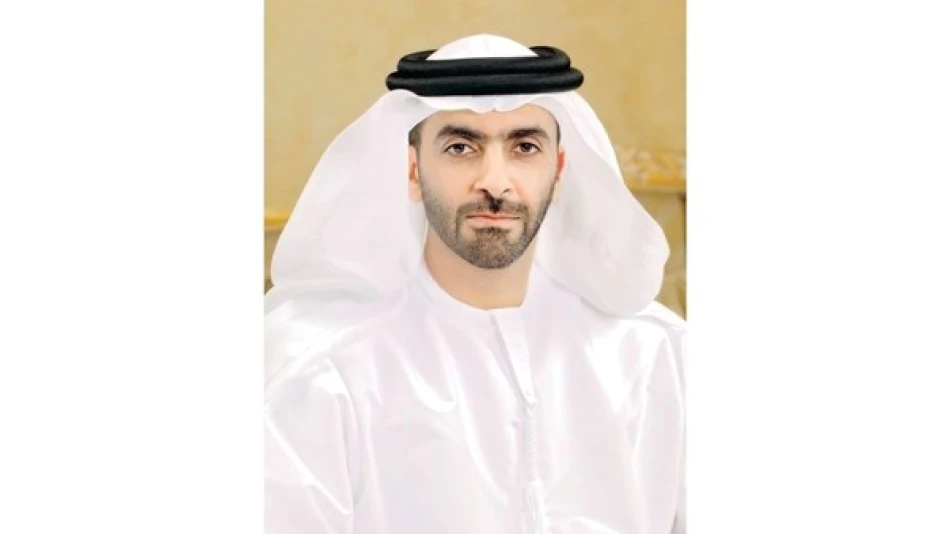
Visionary UAE Leader Highlights Youth as the Beating Heart and Backbone of the Nation
UAE Positions Youth as Strategic Partners in National Decision-Making
The United Arab Emirates is reinforcing its commitment to youth empowerment as a cornerstone of national development, with senior leadership emphasizing that young citizens are not merely beneficiaries of policy but active partners in shaping the country's future. This strategic approach positions the UAE ahead of regional competitors in cultivating next-generation leadership.
Leadership Vision Drives Youth Integration
Sheikh Saif bin Zayed Al Nahyan, Deputy Prime Minister and Minister of Interior, articulated the government's philosophy on International Youth Day, describing young Emiratis as "the beating heart of the nation" and essential pillars during both prosperity and challenges. His statement reflects the broader vision of President Sheikh Mohamed bin Zayed Al Nahyan, who has consistently prioritized human capital development as the foundation of sustainable progress.
The Minister emphasized that youth are viewed as agents of change, decision-making partners, and the minds that will shape the future with confidence and innovation. This positioning goes beyond traditional youth engagement models, suggesting a more integrated approach to governance.
Strategic Implications for Regional Competition
The UAE's emphasis on youth empowerment comes at a critical time when Gulf nations are competing to diversify their economies and reduce oil dependence. Unlike neighboring countries that often struggle with youth unemployment and political participation, the Emirates is positioning its young population as a strategic asset.
Comparative Regional Approach
While Saudi Arabia's Vision 2030 includes significant youth components, the UAE's model appears more focused on immediate integration into decision-making processes rather than long-term structural changes. This approach mirrors successful models in Singapore and South Korea, where young professionals are rapidly integrated into government and business leadership roles.
Economic and Investment Implications
For investors and multinational corporations, the UAE's youth-centric approach signals several key opportunities. A government that actively incorporates young voices into policy-making is likely to be more adaptive to technological changes, digital transformation, and emerging market trends.
The emphasis on innovation and confidence suggests that the UAE is preparing its workforce for high-value sectors including technology, renewable energy, and advanced manufacturing. This human capital development strategy could enhance the country's attractiveness as a regional hub for companies seeking skilled, forward-thinking talent.
Implementation Beyond Rhetoric
The challenge for the UAE will be translating these commitments into concrete institutional changes. Successful youth integration requires more than ceremonial positions – it demands genuine power-sharing and the creation of pathways for young leaders to influence policy outcomes.
Given the UAE's track record of rapid policy implementation, from becoming a regional fintech hub to leading Middle Eastern space exploration, there is reason to expect that youth empowerment initiatives will move beyond symbolic gestures toward substantive governance reforms.
This strategic focus on youth as partners rather than subjects positions the UAE to maintain its competitive edge in an increasingly dynamic regional landscape, where adaptability and innovation will determine long-term success.
Most Viewed News

 Layla Al Mansoori
Layla Al Mansoori






